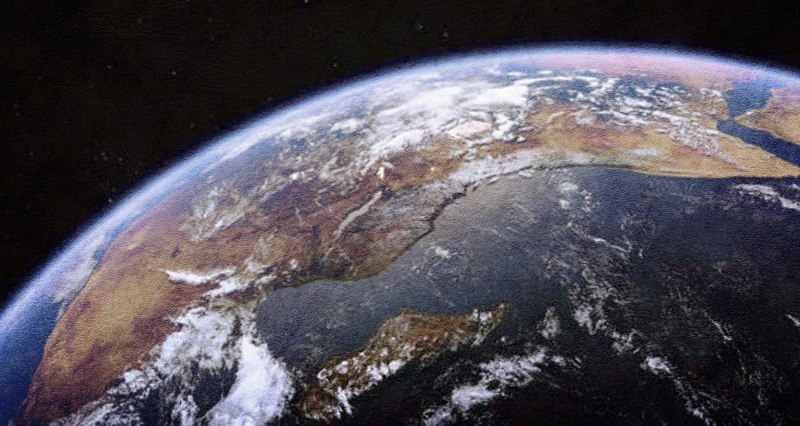Despite the enormous consequences, the spread of the coronavirus seems a very minor event compared to other epidemics that human history has witnessed over the ages.
So far, deaths from the coronavirus have not yet reached a million, while epidemics in the past claimed the lives of millions and even tens of millions. For example, between 1348 -1355, the Black plague claimed between 75 and 200 million lives, and over the sixth and seventeenth centuries, natural and artificial smallpox epidemics killed 56 million indigenous Americans. The Russian flu claimed a million lives between 1889 and 1890, while the 1918 Spanish flu claimed 50 million. Between 1956 and 1958, the Asian flu ended 2 million lives, and in 1986, the Hong Kong flu killed a million people.
But the limited losses of coronavirus (so far) do not mean that it will not have enormous political and economic consequences which will push societies toward sharp turns that change the shape and rules of the world.
New Phase
History teaches us that the catastrophic events of the last century made serious changes in our world. The two world wars radically changed the global order by replacing the balance of European power with a global system led by the United States. The collapse of the Soviet Union led to three decades of American domination that are now nearing their end.
We can therefore say with confidence that the world is preparing for a completely new phase, whose features are being formed today in relative silence, but will find stark expression in the months and years after the epidemic comes to an end.
These changes are situations created as a result of the epidemic, but they will not be temporary or only for use during the emergency. They will be firmly established as part of a new world whose rules and features differ from the current order dramatically.
Some hope that nothing will change, but the change is coming all the same. The question is: where are things actually headed?
Some may think that we are on our way to a more just globalization that expands the circle of beneficiaries on the political, economic, social, and cultural fronts.
The pillars of globalization collapse
But with little scrutiny, we can see that we are moving toward something very different. The epidemic has hit the pillars of globalization to the point that they have no hope of survival.

Globalization has relied mainly on the free movement of human beings, the freedom of supply chains for goods and the free space for services, a basic idea that has facilitated the penetration of borders by great powers to spread their culture and ideas and enable their companies to drain the wealth of poor and developing countries and exploit their human power at the lowest cost.
Multinational companies, which have long served as an alternative to classic military-style colonization, have achieved what weapons and force could not, mainly via laws enacted in developing and poor countries to attract foreign investments. What these regulations actually did was guarantee absolute market freedom for companies who became the sole beneficiaries.
While the free market system is integrated in the advanced western countries, we find the aspects of control, quality assurance, prevention of monopoly and control of the labor market are absent in the developing and poor countries, so the cycle of bleeding the elements of power and wealth continues.
But the epidemic has put a spotlight on the unsustainability of this situation, even for developed countries, not to mention poor and developing countries.
Superstitions and myths
Lockdowns were the first measures enacted to prevent the spread of the epidemic. This resulted in curfews, canceling nearly all flights, and closing borders, thereby damaging the freedom of movement of people and goods on which the economy of globalization depends, its superstitions and myths.
One such myth: it isn’t matter for countries to achieve autarky, as the world has become large manufacturing and production centers dominated by major countries which have scientific knowledge that make them able to create the best ways for abundant production, and they have also the best supply chains, which can deliver all commodities to all countries.
For seven decades after World War II, the idea that world trade enhances security and prosperity in major economies, by offering better products at a cheaper price, and that competition and cooperation stimulate innovation, has prevailed.
But that idea fell completely as the border closed and supply chains collapsed. The epidemic demonstrated that dependence on some goods coming out of the border is a losing and dangerous bet that would inevitably worsen national security for the benefit of producing countries.
The virus has revealed the fragility of global supply chains, as it has become difficult to believe that large and developed countries will continue to accept a position in which they must import most of their vital medical supplies.
As of right now, 97% of all American antibiotics are imported from China, a situation which has suddenly become unacceptable. This situation prompted the United States to activate a Korean War-era law to justify a ban on the export of US made masks, and to oblige US companies that produce such tools abroad to redirect orders to their local market.
In recent weeks, Bangladesh, Ukraine, Thailand, Taiwan, Indonesia, Pakistan, South Africa, and Ecuador have banned the export of masks. India also banned the export of ventilators and disinfectants.
India and Britain also banned the export of Hydroxychloroquine, an anti-malaria drug now being tested to know its potential benefits against the virus. Hungary even banned the export of raw materials for the medicine.
Food shortage crisis
The ban is not limited to medical materials and equipment. As the crisis does not seem to be ending anytime soon, we are beginning to see the signs of an imminent food shortage crisis, with supply chains disrupted globally and 2.5 billion people around the world forced to remain in doors.
Fearing such a crisis, some countries have decided to restrict or suspend food exports completely in the current period in anticipation of higher domestic demand.
For example, Russia and Kazakhstan halted exports of wheat and other foodstuffs. Egypt also stopped its exports of legumes. Some municipalities in Argentina, the world’s largest exporter of soybean products, have blocked roads in the main soybean production areas, ignoring the Federal Government’s order to keep them open. As transport stopped, Canada’s imports of onions and eggplants from India scaled back dramatically over the last two weeks.
Weeks ago, a British government adviser could have said that there was no real need for the UK to produce its food, but now, with countries forced to impose isolation on themselves and their citizens and to restrict their exports, no one can confidently assume that these commodities will always be available.

Flickr
The continuation of this problem may strongly affect poorer countries, as suspending the export of foodstuffs like wheat will lead to the rise of prices of basic food commodities such as bread, especially throughout Africa, which depends on importing these foodstuffs to meet their basic needs. This could lead to serious political instability on the continent.
Movement restrictions
This crisis may be exacerbated by current global restrictions on movement.
Millions of migrant workers involved in agriculture and food production are now being restricted by border closures, which may result in damaging crops and food which we desperately need.
Farms in Spain, Germany, Italy, France and Britain are suffering as a result of the absence of seasonal workers coming from Eastern Europe. India has also limited rice exports due to labor shortages due to border closures.
If the production of staple crops such as wheat, maize, and soybeans is less affected by closures, fresh fruit and vegetables, which depend on people, not machines, in harvesting, processing, and filling, face greater risk of damage because of logistical problems threatening supply.
In addition to that, border closures threaten global food trade as commercial ships are unable to reach ports freely.
Bleak picture
If these conditions have led to precautionary decisions by countries addressing potential short-term food security threats by restricting exports, an even bleaker picture will be present in policymakers’ minds in planning for the medium and long-term.
In addition to this picture, there are two scenes in the crisis that potentially foreshadow this future: the EU is struggling to save poor southern countries like Italy and Spain through funding from rich countries like Germany. While Poor countries insist that funding should be given as grants, wealthy governments insist that money should only be loaned, fearing their taxpayers’ wrath, which could be exploited by radical nationalist movements to strengthen their positions advocating leaving the EU.
The war of masks has been ongoing, wherein countries confiscate shipments of masks and supplies intended to be sent to others. This situation reflects the magnitude of the crisis and the chaos in the cooperation relations among countries at the time of the pandemic.
Self back in the center
When the epidemic is over, there will be enormous changes in the global economy. There will be low productivity and demand. All economies will suffer from high unemployment and inflation. Countries’ debts will increase and many companies will go bankrupt.
In short, this will mean deep economic suffering that threatens the legitimacy of national governments, regardless of their political system, pushing governments to start playing their old roles in their national economy, perhaps more than ever, to ensure economic, political and social stability.
In this sense, the epidemic resembles the depression of the 1930s, which ended only with state intervention after the market failed.
Such a return of the state may be a disaster in some places. One look at Hungary is enough to make this clear. Prime Minister Viktor Orbán has used the epidemic as a pretext to give himself the power to rule by decree for as long as he wishes. We have also seen censorship of the free press in democratic countries. Spain, for instance, used specialized private companies to filter content about the epidemic on social media.
The first indications of state intervention in economy and media during the epidemic suggest that such measures will only be expanded in the years ahead to ensure autarky and counter any challenge to the legitimacy of existing systems.
The EU’s failure to coordinate a regional response to the epidemic is a failing of globalism over all. If we add to this fact the appalling selfishness European governments have displayed, it will be easy for us to predict the break up of the EU. If this occurs, each country will become self-centered, especially since the conditions of the predicted stagnation will not leave any space for any kind of solidarity among nations.
The experience of the epidemic has shown that refugees and migrants will be the most prominent victims of the coming hard times. Discrimination against them in health care and border closures is enough to know that the freedom of movement of human beings will be restricted to countries’ interests. In the coming years, economic planners will have to give priority to employment and social welfare opportunities of their own citizens, especially if the economy continues to dip into the red.
Welcome to the new age of nationalism
When the crisis ends, people will prefer to rely on the national state which has the fiscal, regulatory, and emotional strength that global institutions lack, especially in times of emergency. These attitudes will strengthen advocates of the national state, encouraging governments to adopt anti-globalization economic and social policies such as autarky, protectionism and stricter border controls. Thus we will soon likely say goodbye to globalization, and hello to nationalism.

















Leave a Reply